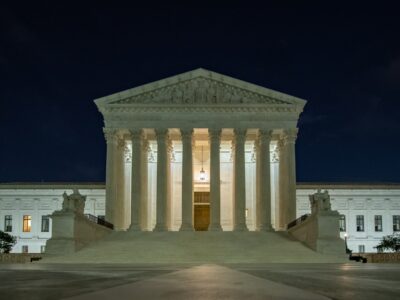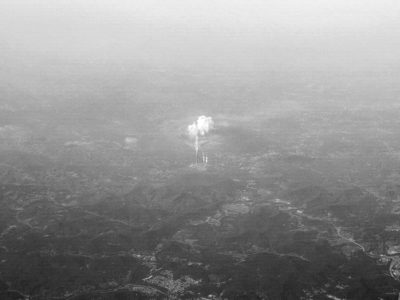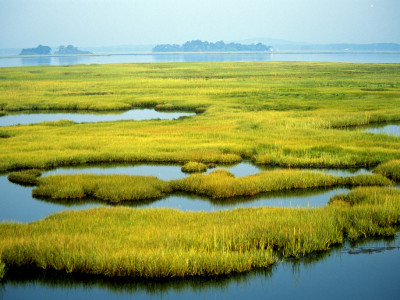SCOTUS
Is Loper v. Raimondo Really the Power Grab Commentators Assume?
The Supreme Court has already grabbed power from agencies through the major questions doctrine.
Headlines about today’s decision in Loper v Raimondo overturning the 40 year-old decision in Chevron v NRDC that granted agencies deference in their interpretation of ambiguous statutes focus on the “massive power grab,” the decision’s “sweeping” nature and call it a “blow” to the administrative state. My view may be idiosyncratic but I don’t view …
Continue reading “Is Loper v. Raimondo Really the Power Grab Commentators Assume?”
CONTINUE READINGEPA’s Return to Bush-Era Clean Air Act Reforms Sacrifices Agency’s Duty to Protect Environment, Ignores the Law
Quiet changes buried behind the big de-regulatory headlines spell disaster for the environment
As I explained back in August, the Trump Administration’s proposed Clean Power Plan replacement (the “Affordable Clean Energy” or ACE rule) came with a significant change to how the EPA has traditionally interpreted the Clean Air Act’s New Source Review (NSR) provisions mandating pre-construction environmental review and the installation of air pollution controls to offset …
CONTINUE READINGSupreme Court Issues Narrow Decision in Dusky Gopher Frog Case, Leaving Key Questions About the Scope of Critical Habitat Unresolved for Now
Fifth Circuit Must Now Review Whether Designated Critical Habitat is “Habitat,” & Whether Agency’s Assessment of Costs and Benefits of Critical Habitat Designation Was Arbitrary
The U.S. Supreme Court filed its opinion in Weyerhaeuser v. U.S. Fish and WIldlife Service today. I’ve posted about this case previously here (when our clinic filed its brief on behalf of preeminent scientists) and here (on the day of the oral argument in the case). (Note that this blog post, like all my posts on this …
CONTINUE READINGThe Endangered Species Act in the Supreme Court: Oral Argument Today in Weyerhaeuser v. US Fish & Wildlife Service
Post-Argument Panel at Georgetown Law Will Feature Advocates
Oral argument in Weyerhaeuser v. U.S, Fish & Wildlife Service is this morning, the first day (and first argument) of the new Supreme Court term. The Court will be short-handed, with only eight Justices hearing the case. I’ll be attending the argument and speaking on a post-argument panel at Georgetown Law School, along with other advocates …
CONTINUE READINGUCLA Law Wells Environmental Law Clinic Files U.S. Supreme Court Brief on Behalf of Scientists in Endangered Species Act Case
Scientists’ Brief Argues Federal Agencies and Courts Must Use Science in Interpreting “Habitat” Under the Endangered Species Act; Clinic Clients Include Profs. Stuart Pimm & E.O. Wilson, Along With Three MacArthur “Genius” Award Recipients & Ten Other Esteemed Scientists
Congress enacted the Endangered Species Act in 1973 to protect species at risk of extinction. Congress viewed species extinction as an urgent threat requiring urgent, decisive action. The result was a bipartisan law designed to apply scientific knowledge and expertise to managing the threats to U.S. species. While the Act has been controversial, and characterized …
CONTINUE READINGSupreme Court Deals Obama Administration Blow in Clean Water Act Case
Supreme Court allows lawsuits early in Clean Water Act permitting process, as Justice Kennedy ominously questions the Act’s reach
The Supreme Court today dealt another blow to the Obama administration in a Clean Water Act case. The Court’s unanimous opinion in United States Army Corps of Engineers v. Hawkes Co., No. 15-290, addressed the finality of an Army Corps “approved jurisdictional determination” (JD) on whether a particular parcel of property contains “waters of the …
Continue reading “Supreme Court Deals Obama Administration Blow in Clean Water Act Case”
CONTINUE READINGSupreme Court: North Carolina Tort Plaintiffs Can’t Sue for Latent Injuries from Contaminated Sites
Court holds that federal law doesn’t preempt state statutes of repose
This morning, the U.S. Supreme Court issued its decision in CTS Corp. v. Waldburger. In this case, which my colleague Jesse Lueders described and analyzed in detail here and here, the Court had to decide whether state statutes of repose can bar tort lawsuits by people harmed by latent injuries from toxic contamination, by imposing …
CONTINUE READINGGuest Blogger Miriam Seifter: The Environmental Dimension of American Trucking
On Tuesday, the Supreme Court heard argument in American Trucking Associations, Inc. v. City of Los Angeles, a case addressing the preemptive scope of the Federal Aviation Administration Authorization Act (FAAAA). Over at Scotusblog, I’ve discussed the two relatively technical questions presented in the case. The first asks whether two provisions in the Port of …
Continue reading “Guest Blogger Miriam Seifter: The Environmental Dimension of American Trucking”
CONTINUE READINGSupreme Court overturns Ninth Circuit decision that held L.A. County Flood Control District liable for stormwater pollution in a poorly-reasoned, but narrow, decision
Today, the U.S. Supreme Court issued its opinion in Los Angeles County Flood Control District v. Natural Resources Defense Council. I’ve blogged about this case before, noting that the Supreme Court’s grant of review in this case was based on a completely mistaken premise. (If you’re unfamiliar with the case, the linked post explains in …
CONTINUE READINGThe strange saga of how Los Angeles County’s stormwater pollution ended up in the Supreme Court
Tomorrow, the Supreme Court will hear oral argument in Los Angeles County Flood Control District v. Natural Resources Defense Council. This case involves a lawsuit by clean-water advocates to require our County Flood Control District to take responsibility for ensuring that polluted stormwater doesn’t impair our local water quality in two local rivers. The Ninth …
CONTINUE READING






